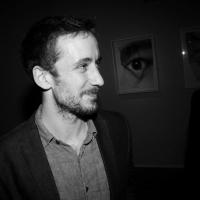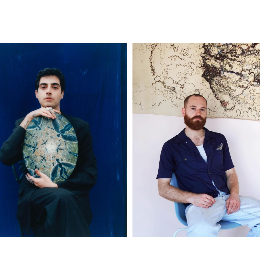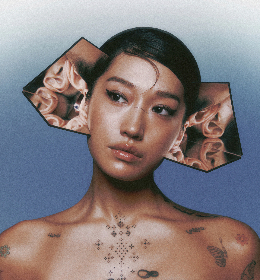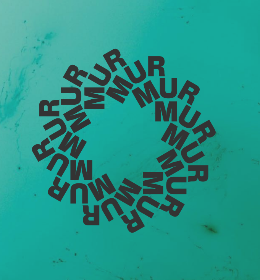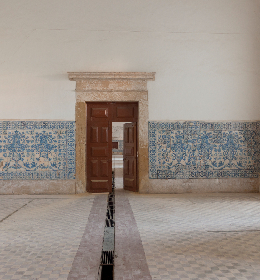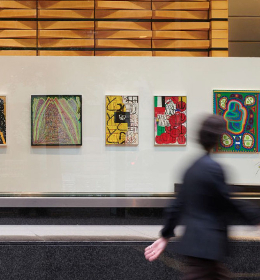It is by way of L’Aleph, a collection of 17 Jorge Luis Borges novels, published across different periodicals in Buenos Aires between 1944 and 1952, that the artist invites us into his dreamlike world. Here, time, memory, images are rewritten infinitely, recounting new stories, leading us towards new voyages.
The invisible hand
Time is at the heart of Couturier’s work, in the early 90s the artist began to develop the concept of “Redressement” (recovery), he began gathering works that are “not made by man, but whose form evoke figures and landscapes that are easily identifiable.”
It is one of these providential forms that first meets the audience, a lithograph container within which Egon Schieles and Matisses once passed through, sat alongside a postcard of a provincial square.
The artist presents us with other pieces gleaned from his travels: coral, the bottom of graphic designer’s glue box, a flat-bottomed thermostat 8, all of which Couturier puts on display without any modifications. Among the glass cabinets there are even pieces from the Musée Quai Branly collection to be found “which together evoke landscapes and the relationship between globality and the individual…”
Yet interspersed among these 'ready-mades', the artist presents works crafted by his own hands, tryptichs "people, animals, things..." Powerful and timeless, these works seem to respond to one another and mirror one another.
A life dedicated to art and the study of art
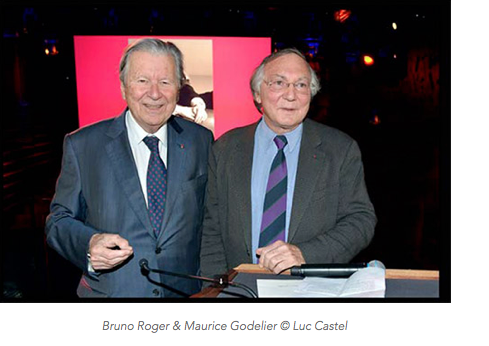 Vice president of the Friends of the Musée du Quai Branly, member of the acquisition council of the museum, and passionate collector, Bruno Roger created the Marine Aublet foundation in memory of his wife.
Vice president of the Friends of the Musée du Quai Branly, member of the acquisition council of the museum, and passionate collector, Bruno Roger created the Marine Aublet foundation in memory of his wife.
Great-granddaughter of the Orientalist painter Albert Aublet, daughter of Félix Aublet, architect under Le Corbusier, Martine Aublet introduced and directed the role of patronage at the Musée Quai Branly. Today, as well as this museum space, the foundation finances research grants in the domains of ethnology, non-European art history and art history.
These grants, each of €15,000 have aided 38 young researchers across the world since their conception in 2012.



